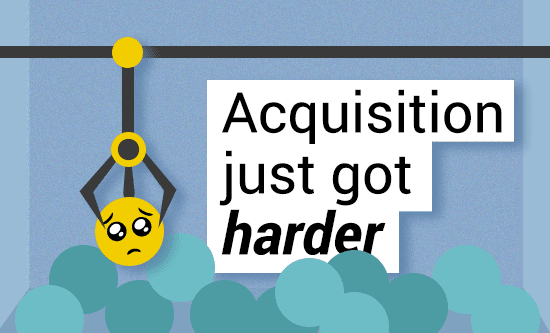When confinement ends there is likely to be a long period of subdued economic activity, it will take time for economies to get back to full power and so that means there will be an extended period of weak demand. This means marketing will need to shift its focus from gross numbers to small increments. There’ll be a hunt for value not a hunt for growth. Companies that have grown large by “investing” money into acquisition are going to find the cost of acquiring an incremental customer will be higher and the value of the customer they acquire will be lower. The economic models they use to justify acquisition will break down, and the underlying economics will unravel. Here are some of the underlying assumptions that will cause acquisition to unravel.
Assumption #1: Higher Incentives
Consumers will be more economically conservative = Acquisition incentives need to be higher, where an incentive used to be $10, now it may need to be $15 or $20.
Assumption #2: Decrease in Conversion Rates
Consumers will be less optimistic about their future usage (of anything) = The future benefit of switching vs staying will turn towards the low effort option of staying, conversion rates will fall
Assumption #3: Lower CTV
Newly acquired consumers will spend less = As consumption declines generally where you modelled a future spend of $100, now it will be say $80.
The inherent risk of an acquisition dependency will become more apparent. Acquisition is risky, you lay out money to acquire a customer but there is no guarantee how much money the customer will spend or how long they will stay for. I call it the acquisition bet. Financially rational people will do the maths and realise that betting on existing customers are a much lower risk. Acquisition spending will decline, retention spending will rise.



